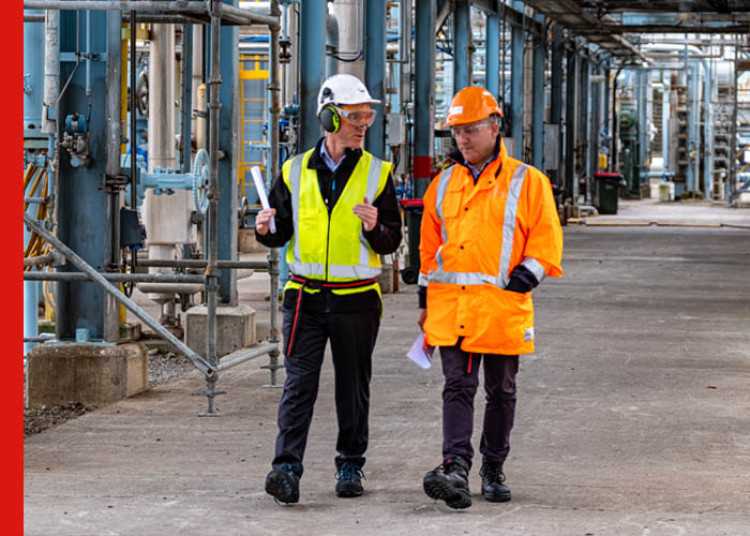
Balance CEO Mark Wynne and Hiringa CEO Andrew Clennett
With most of the world’s economies trying to reduce their reliance on fossil fuels, demand for alternative energy sources is at an all-time high – and it just keeps growing.
One of the best alternative energy sources is hydrogen, which is an outstanding replacement for diesel and natural gas. It’s the most abundant element in the universe and it can power fuel cells that produce energy with water as the only by-product.
But not all hydrogen is equal. The process of producing hydrogen takes a lot of energy and if that energy comes from fossil fuels, the hydrogen isn’t a zero-carbon fuel source. Make hydrogen solely from renewable sources, though, and you have ‘green’ hydrogen, an in-demand zero-emissions fuel source that’s ideal for commercial transport and heavy industry.
New Zealand has capacity to produce more renewable power than it needs
Aotearoa could be an important global source of green hydrogen, which would have significant upsides for the local economy. A recent report by Te Waihanga – the New Zealand Infrastructure Commission – said the country has “abundant, untapped wind, solar, hydro and geothermal resources that, combined, are treble the amount identified by the Climate Change Commission for achieving net-zero carbon emissions by 2050”.
Although New Zealand is probably too small and remote to be a true ‘superpower’ for green hydrogen production, experts say NZ could become an important supplier to markets like Japan, Korea and the EU.
“We’re very blessed with natural resources and we have a huge capacity for renewable generation,” says Cathy Clennett, Executive Director for Hiringa, which is establishing a hydrogen refuelling network across New Zealand.
“As we move toward developing more renewables, including solar, and wind resources both onshore and offshore, we’re going to be able to generate energy well beyond what we need as a country. This is an opportunity both domestically and for export.”
New Zealand has a strong talent pool in the energy sector, based mainly in Taranaki, that can provide the expertise needed to capitalise on international demand.
Clennett says it’s not only hydrogen itself that New Zealand can export, but also the technology and intellectual property the country is developing.
A strong hydrogen industry would create jobs and bring significant value to our economy, she said.
“We’re getting a lot of inquiries from other countries about what we’re doing as a business, so the technology opportunity is huge. New Zealand is well positioned to become a strong supplier of green hydrogen and take a leadership position in the international green hydrogen market.”
‘We can have our cake and eat it too’
By producing more renewable power than the country needs, New Zealand could ultimately have a 100% renewable national grid, and export hydrogen to other nations, Clennett said.
We could “have our cake and eat it too”, but to achieve this the country would need to invest in renewable energy generation infrastructure: projects that capture wind, hydro and solar power across New Zealand.
Not only could New Zealand decarbonise its own grid and create a valuable export commodity, but the country would no longer need to rely on imported liquid fuels, providing extra stability and security for our local economy and industries.
“Producing all our energy onshore, in renewable ways, would be great for decarbonising, for our economy, and for our balance of payments,” says Clennett.
“There’s plenty of upside for New Zealand.”
